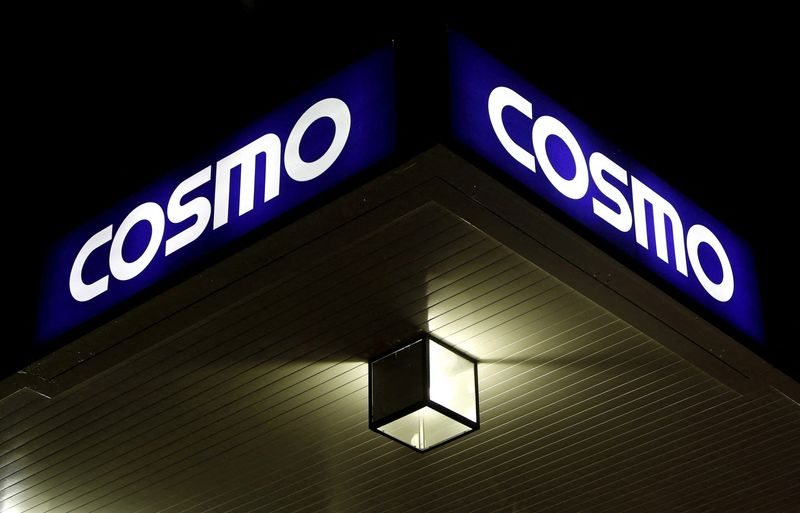By Makiko Yamazaki
TOKYO (Reuters) -Cosmo Energy Holdings' shareholders approved a "poison pill" takeover defence on Thursday, in a controversial vote that excluded certain activist shareholders and has implications for hostile takeover attempts in Japan.
It marks the second so-called majority-of-minority vote on a poison pill in Japan. They prevent specific shareholders from voting, a practice some governance experts say could serve as a new weapon against shareholder activism.
Cosmo, Japan's third-biggest oil refiner and 20% owned by a group led by prominent activist Yoshiaki Murakami, can now implement a poison pill to dilute the activists' stake if the group buys more shares without, for instance, stating the purpose of the purchase.
The company reiterated at Thursday's annual general meeting that the exclusion of Murakami from the vote is justified to "reflect the will of general shareholders", who it says could be pressured into selling their shareholdings because effective control by the activists "would damage corporate value".
Murakami's group, which called for a spin-off of Cosmo's renewable energy business and a consolidation of its refineries, said in a statement after the meeting that the vote lacked justification and is invalid.
"It is completely unacceptable for management to refuse to allow unwelcome shareholders to exercise their voting rights," it said.
The activist group has previously warned that such a "forcible and oppressive" voting method would only raise the risks of management entrenchment and potentially set back corporate governance in Japan.
Cosmo shares reversed direction to fall after the vote results, closing down 3.4%.
The company said it plans to announce details of the vote on Friday.
'Majority of minority' conditions are typically applied to protect general shareholders in a buyout by a controlling shareholder, but have never been used outside Japan to prevent certain shareholders from voting, Stephen Givens, a corporate lawyer based in Tokyo, said.
Governance experts point to concerns that such votes would fly in the face of shareholder equality and embolden companies in Japan to hang on to much-criticised cross-shareholdings as a defence against hostile takeovers.
"The notion that elected directors can on their own authority pick and choose which shareholders may vote stands shareholder democracy on its head," Givens said.

The Cosmo voting also comes as Japan is in the midst of hammering out a code of conduct to spur mergers and acquisitions. Drafts state that the 'majority of minority' votes "may be permitted only in very exceptional and limited cases", noting that such votes could discourage even desirable takeovers.
The first such vote, at newspaper printing presses manufacturer Tokyo Kikai Seisakusho, was backed by the Supreme court in 2021. The company had excluded its top shareholder who at the time had a stake of about 40%.